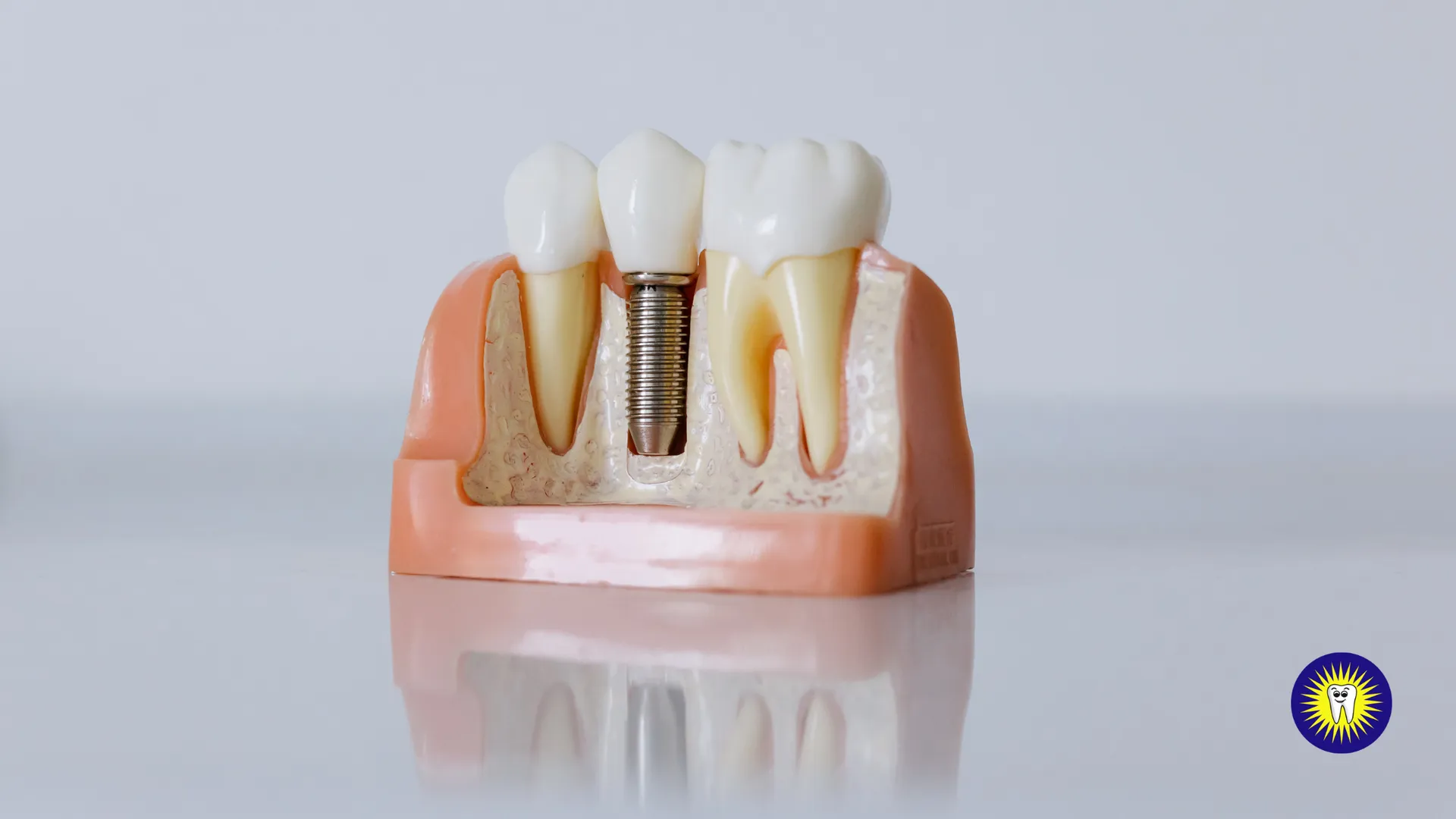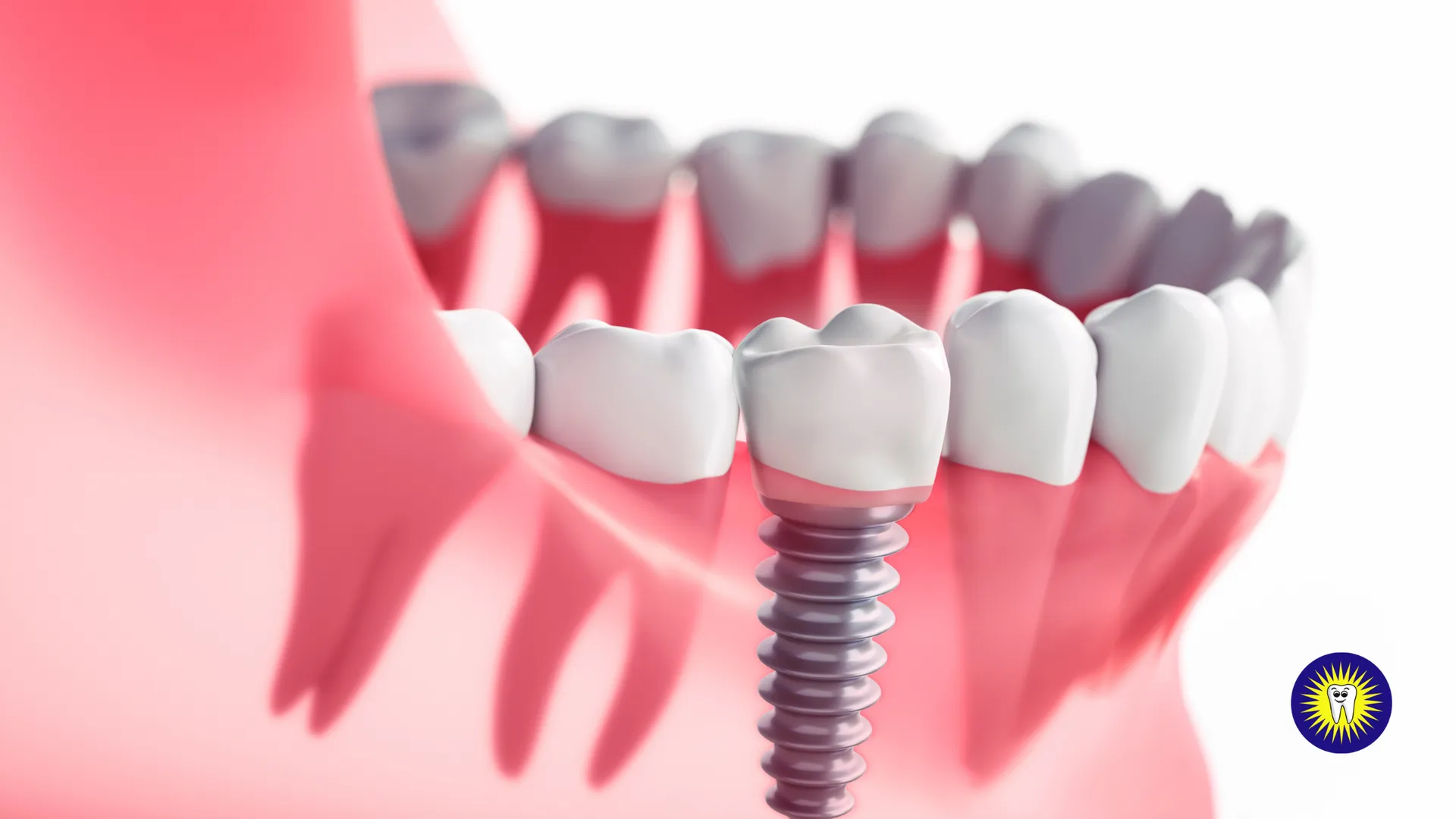Many patients experience tooth loss, whether that is a result of tooth decay, periodontal disease, or an oral injury. Treatment options were limited for years, as patients would have to receive bridges or dentures to fill the gap created by missing teeth. Now, dental implants are available for patients and our dentists at Liberty Square Dental Group have outlined what this procedure offers.
What are Dental Implants?

A dental implant procedure involves the surgical replacement of tooth roots with metal posts that are similar to a screw. These posts replace harmed or missing teeth with artificial teeth that appear and work like real ones. For patients, dental implant surgery is a beneficial alternative to dentures or bridgework, both of which can lack a proper fit or simply be unachievable because of insufficient natural teeth roots that are needed to build tooth replacements.
Your jawbone’s condition and the type of implant that you require will determine how dental implant surgery is performed. Dental implant surgery might be a process that demands numerous procedures, but it is meant to provide great support for your teeth and that can only be achieved when the bone heals tightly around the implant. Bone healing of this type requires time and the process can take a few months.
Who Needs a Dental Implant?
As mentioned, patients with tooth loss can consider dental implants because the titanium within them fuses with the jawbone, the implants will safely remain in place and won’t cause any issues or noise, and the material can’t decay.
You might be a candidate for dental implants if you:
- Are missing one or several teeth
- Have a jawbone that is fully grown
- Have sufficient bone to secure the implants or are capable of having a bone graft
- Have healthy oral tissues
- Don’t have health conditions that will impact the healing process
- Are unable or unwilling to receive dentures
- Wish to improve your speech
- Can commit several months to the process
- Don’t smoke tobacco
Types of Dental Implants

Endosteal Implants
The most common type of dental implant, endosteal implants still require a healthy jawbone for the post to fuse to. Placeholder posts, which are shaped like screws, are inserted into the jaw and then have false teeth fitted onto them. There is a healing period after the procedure because the jaw needs time to recover and fuse with the post. False teeth can then be placed onto the post and fit in among the surrounding teeth.
Subperiosteal Implants
This type of dental implant sits atop the bone but remains underneath the gum. First, a metal frame is placed beneath the gum and has a post attached to it. As the gum heals around the frame and secures it in place, false teeth are attached to the poles that arise from the gum. This procedure is for patients who don’t have sufficient jawbone for an implant to be placed or have no interest in oral surgery that would add bone to the area.
Zygomatic Implants
A more complicated procedure that should only be considered if you have insufficient jawbone for the Endosteal implant, this alternative sees the implant placed in the patient’s cheekbone instead of the jawbone.
How Long do Dental Implants Last?
Your dental implants can last a lifetime, though that will depend on your commitment to consistent oral health practices. Brush and floss routinely; an interdental brush can help you get between teeth, cleaning the nooks and crannies that surround your teeth, gums, and metal posts.
Regularly scheduled appointments with your dentist, confirming the health and ideal functioning of the dental implants. Avoid chewing on tough foods, including ice and hard candy, because they can potentially break down the crowns. Do your best to also avoid tobacco and caffeine products that can stain your teeth, and seek dental treatment if you tend to grind your teeth.
Why Our Dentists Might Recommend Dental Implants for Your Treatment Plan

In addition to the stability offered by dental implants, several other reasons you might consider dental implants for your treatment plan:
Better Appearance
Dental implants resemble and feel like your own teeth. They also become a permanent solution because they are designed to fuse with your bone.
Improved Speech
When dentures fit poorly, your teeth can slip within the mouth and affect your speech. Dental implants let you speak properly and keep your teeth firmly secured.
Superior Comfort
As dental implants settle in, they become just another part of your mouth and don’t create the discomfort that is often found in removable dentures.
Easier Eating & Durability
In contrast to sliding dentures that can make chewing problematic, dental implants function like natural teeth and allow you to eat comfortably. Also, dental implants are extremely durable and will last for plenty of years, perhaps even a lifetime with adequate care.
Improved Self-Esteem & Oral Health
Dental implants enhance your self-confidence by returning a healthy smile after the procedure. Since dental implants don’t reduce other teeth like a tooth-supported bridge would and leave your nearby teeth completely unchanged, your oral health remains in good shape. If you opt for individual implants, they provide easier access between teeth and improve your oral hygiene.
Convenience
Dental implants are a more convenient option than removable dentures because they don’t need to be taken out or have adhesives applied to keep them stable.
Preparation Process for Dental Implant Treatment

Planning for a dental implant might be a process that includes a few specialists, like an oral and maxillofacial surgeon who specializes in conditions of the mouth, face, and jaw, a periodontist who focuses on treating structures that support the teeth, or a prosthodontist who designs and fits artificial teeth.
Dental implants consist of one or several surgeries, so you must be completely evaluated. A thorough dental exam is the first step, which might include dental X-rays, 3D images, and models made to resemble your teeth and jaw.
Next, a review of your medical history will be completed and you need to make our dentists aware of any conditions and medications that you use. Your treatment plan will be adjusted to your particular situation, taking into consideration how many teeth require replacement and the condition of your jawbone and natural teeth.
Anesthesia options will be discussed by you and your dentist before the procedure. You will also receive instructions on what you can eat and drink before the operation. Ensure that you have someone to take you home in the aftermath of the procedure and expect to get lots of rest for the remainder of the day.
Book Your Next Dental Appointment
Contact Liberty Square Dental Group to learn more about our Toronto dental office or Scarborough dental clinic. We look forward to seeing you soon!

